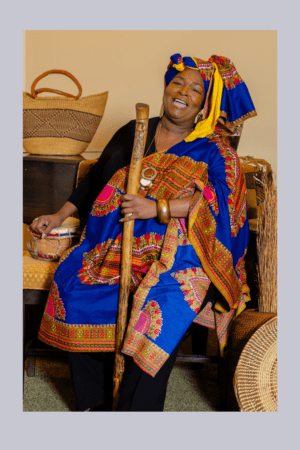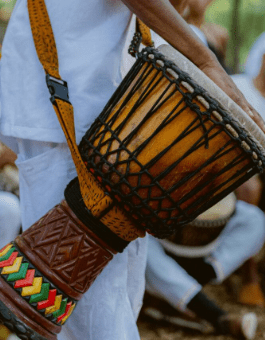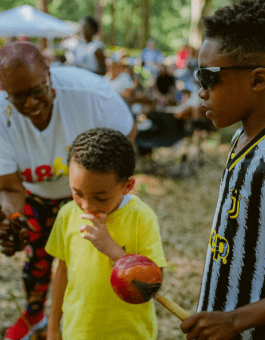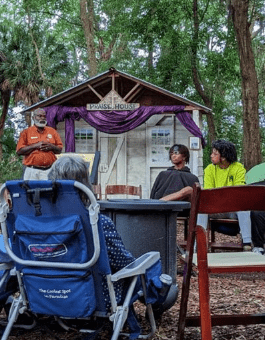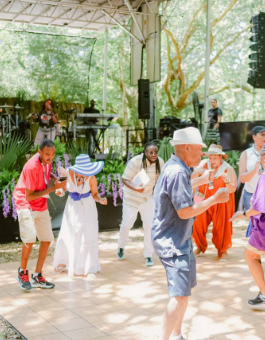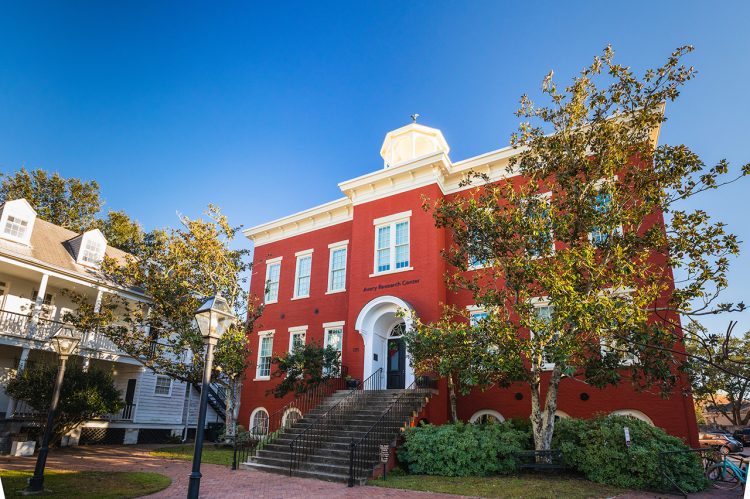

PRESS RELEASE
After being closed for two years, the Avery Research Center for African American History and Culture at the College of Charleston will reopen this month following extensive structural renovations. An open house and grand opening event will take place from 4 to 7 p.m. on Wednesday, Jan. 15, 2020.
“People have missed the Avery,” says Daron-Lee Calhoun II, the Avery’s facilities manager and director of public programming and outreach. “It’s an important asset that gives the community an opportunity to actually see their history.”
Originally constructed in 1867 as the Avery Normal Institute, the first accredited secondary school for African Americans in Charleston, the 153-year-old building, which is located a few blocks west of campus on Bull Street, underwent a major, $2.3 million renovation. Repairs included replacing the HVAC systems, windows and roof; restoring the soffit, parapets and exterior wall system; and adding new shelving for better storage of all the artifacts and manuscripts.


Exhibits at the Avery Center include a book signed by Langston Hughes and original art work. (Photos by Mike Ledford)
In 1985, under the leadership of the former South Carolina state Rep. Lucille Whipper and archivist Margaretta P. Childs, the alumni of the Avery Normal Institute formed the Avery Institute of Afro-American History and Culture. It joined with the College of Charleston to establish the Avery Research Center to preserve the legacy of the Avery Normal Institute and educate the community on the history and culture of African Americans in Charleston, the South Carolina Lowcountry, and South Carolina at large. In addition to permanent exhibits highlighting African American culture and history, the center houses a variety of historical documents and artifacts available to researchers including approximately 200 manuscript collections, more than 4,000 photographs and hundreds of reels of microfilm, VHS tapes, clipping files and digital formats.
With repairs of leaks, better temperature control and improved storage, the center can now focus on growing and enhancing its programs and exhibits.
“The community will be able to see better programming here now,” says Calhoun.
To mark its reopening, the Avery is hosting a series of new exhibits beginning on Jan. 15, including:
- Since 1920: Zeta Phi Beta Centennial – The Gamma Zeta chapter of Zeta Phi Beta Sorority Incorporated presents a centennial exhibit filled with the rich history of the sorority in print and paraphernalia. Visitors can see in-depth the programming, philanthropy and reach of Zeta Phi Beta during their 100 years.
- The Water Keeps Rising – Hip-hop artist and activist Benny Starr will be creating an interactive exhibit based on data from the Avery’s State of Racial Disparities Report in Charleston County. This exhibit will create an immersive experience for visitors. In the areas of civic engagement, racial disparities, the environment and performance art/music, this exhibit will aim to connect the dots from historical data and archival information up to the present conditions of the Lowcountry.
- Resilient – Local artist Chris “Kolpeace” Johnson will highlight the power of being resilient with this work that recognizes African Americans who have shown strength through adversity including the late local activist Muhiyidin D’baha and Cyntoia Brown, who faced life in prison after being convicted of homicide as a juvenile. These pieces are tributes to memorialize the impactful strength of an unsung hero in the community, engaging the soul and spirit.
- The African Origins of Mathematics – Charleston resident and artist Robert “King David” Ross highlights the direct impact Africa has had on modern mathematics in this exhibit. Showcasing the first math instrument, the Ishango bone, the exhibit allows visitors to see the influence Africa has had on every aspect of life.
And with the Avery Research Center having recently completed its search for a new executive director, who will be announced in April, Calhoun says the center can now move forward with a new chapter in the building’s long history and cultural significance.
“The new executive director can come in and focus on staff, focus on research, focus on raising money and being a public liaison for the Avery,” he says. “It’s definitely a fresh start.”
The Avery Research Center is located at 125 Bull St. in downtown Charleston. The center is open Monday through Friday from 10 a.m. to 5 p.m. and is free to the public. Guided tours are available at 10:30 a.m., 11:30 a.m., 1:30 p.m., 2:30 p.m. and 3:30 p.m.



